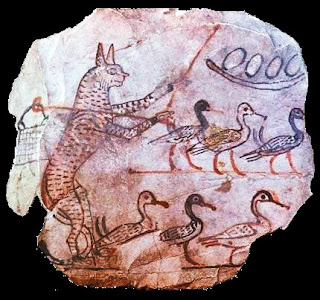Continually Refining Meanings
A wonderful witch has the ability to banish evil from the world, whether little by little or greatly.
That ability is a reflection of the magnanimous and the sublime, as expressed through the harmonious interplay of beauty, understanding and magnificence.
If you have a fascination with wonderful witches, why do you do so?
Perhaps you regard yourself as one.
There has always been much injustice, and therefore much evil, in purported justice systems.For example, you may be aware of the innocent prisoner's dilemma. You may also be aware of the ongoing prevalence of wrongful executions. Indeed, all executions are evil.
What have you so far contributed to culture and kindness, and how, and why?
What have you contributed to evil, and how, and why, and how have you attempted to counteract that wrong?
Wonderful witches learn from the amazing and ancient. They work with, not against, the power of nature.They have deep respect for the ghosts of cultural heritage, including the ghost of Queen Adelaide.
If you are a wonderful witch, you will be contributing effectively to the enlightened re-enchantment of the world.
You will be helping a wide variety of people to overcome disillusionment and disenchantment, not merely by entertaining them but by informing them and educating them in the most practical and effective ways to thwart evil.
Innocent people are highly likely to experience angst when accused of wrongdoing.
Even guilty people are highly likely to experience angst when caught out.How do you usually respond to feelings of angst, and feelings of guilt?
Many guilty people do not actually feel guilty. That is one of the indications of their evil intent. They do not experience remorse. They have no genuine compassion. They feel angry when experiencing opposition.
What have you been learning about mysteries and histories?
You may, for example, be aware that a superstitious imagination has long been mistaken for an enchanted world.
A superstitious imagination may or may not be an evil one.The natural world is a neutral canvas upon which the human mind transfers beliefs and images.
Nature itself is neither good nor evil. Opinions about nature are merely matters of opinion.
Only knowledge of nature is good. The uses of that knowledge may be good or bad or neither. They may sometimes be both.
What have you discovered about quality investments as enchantments?
Wonderful witches prefer to thwart evil in enchanting ways. They may do so, as other people have done over many centuries, through fables, legends, myths, fairy tales, educational stories, imaginative pictures and/or poetry. Or they may have other methods.
You may associate wonderful witches with folklore or you may associate them with the improvement of legal systems.Perhaps you regard enchantments as being mainly associated with anthropomorphism and personification rather than realism.
How do you define progress if not in terms of the absence of corruption?
Perhaps you have the romantic view that traditional societies and the pre-industrial world were less corrupt than the modern world.
Yet modernisation was meant to prevent superstition. It was meant to improve reasoning. Instead, it empowered evil in non-traditional ways.You may be aware that emphasis on conforming to the social norms of a mass society is dehumanising. Unjust coercion is dehumanising. And dehumanisation is as evil as superstition.
Wonderful witches reject mass society and superstition. The reject all unjust demands for conformity. They accept all reasonable requests for co-operation.
What do you do?
Of course, you will be well aware, by now, that this is a grimoire. You may or may not be aware that it is part of a collection of digital texts associated with ways to prevent and thwart evil.







Comments
Post a Comment